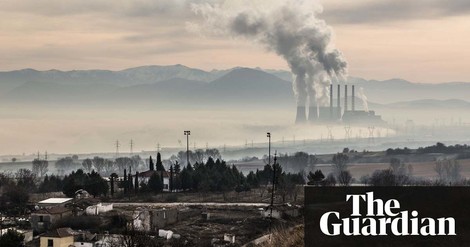Your podcast discovery platform
Curious minds select the most fascinating podcasts from around the world. Discover hand-piqd audio recommendations on your favorite topics.

piqer for: Globalization and politics Global finds Climate and Environment
Javier is a Berlin-based multimedia journalist. He completed a MA in International Journalism at City, University of London and is focused on humanitarian and conflict issues.
With experience in several countries, he's covered the refugee crisis, Turkey's coup attempt and the Kurdish conflict.
Among others, his work has been published at ABC News, Al Jazeera, Channel NewsAsia, RBB, IRIN News, El Confidencial, Público or Diario ABC.
Photo Series: Greece's Dirty Landscapes
Greece has been hitting the headlines on and off for the last eight years. Much has been said about its huge debt crisis, the impoverishment of Greeks, the rise of the far right and the risk of contagion for the entire European Union. But, unfortunately, Greece has more problems — including a dirty one of which only few people have heard.
Far from white and blue villages lying on crystalline Aegean shores, the north-west region of West Macedonia is also a symbolic part of the country: It's known for being home to lignite mines and power stations.
Thanks to the Guardian's photo essay by Anna Pantelia, we get to see this other face of Greece — an ugly face completely unknown to tourists and visitors. Pantelia has visited and talked to residents of Ptolemaida, where you can find the biggest mine in the Balkans. As Pantelia mentions, it's reported to account for the 30% of the country’s electricity production.
The dark, lunar landscape of Ptolemaida is by no means the only problem the region has. Coal is one of the most toxic energy sources used today, and lignite, or brown coal, is the dirtiest version of it. Greece has a lot of pressing issues to deal with, so many would say mining could help alleviate the financial struggles of many Greeks. Plus, Germany still is the largest lignite producer in the world. Then why can't the Greeks mine? Because they are dying:
Kostas works as a guard for the state-owned Public Power Corporation (PPC), like his father before him. “My father died of cancer when I was 12,” he says. “Four other men from his shift lost their lives from cancer.”
And despite testimonies as such and the data gathered by many NGOs like Greenpeace, Greece continues to promote this outdated source of energy:
Despite strict EU regulations on coal and the declining profits that the industry faces, Greece has invested €1.3bn in the construction of two new plants in the area.
Stay up to date – with a newsletter from your channel on Climate and Environment.
